 Mutual support Mutual support To see the way that authors support each other on social media (for the most part) it would be easy to think that things have always been that cordial in the writing fraternity. Sadly, they have not. In the past it was quite common for authors to insult each other. Even in quite recent history there has been the odd barbed comment. Now, I must make it clear that I am not advocating a return to such uncivilised behaviour. But a good insult, delivered with wit, can be a source of humour. 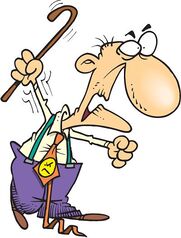 An Ancient Greek being insulting An Ancient Greek being insulting While there is evidence that goes all the way back to Ancient Greece, when playwrights used to insult each other’s works, they tend to become more witty as we get closer to modern times. Shakespeare is now a revered literary figure throughout the world, but it wasn’t always so. In his own time he came in for a fair share of insults. Fellow playwright Ben Johnson once said of the Bard of Avon “I remember, the players have often mentioned it as an honour to Shakespeare that in his writing (whatsoever he penned) he never blotted out a line. My answer hath been, would he had blotted a thousand.” OK, it’s not quite up there with “Your Momma” but it’s quite a damning criticism. 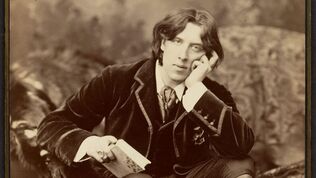 Irish poet and playwright Oscar Wilde, thinking up new insults. Irish poet and playwright Oscar Wilde, thinking up new insults. Oscar Wilde is well known for his caustic wit. After spending time “at Her Majesty’s pleasure” as a guest at Reading high security hotel (prison) he commented “If this is the way Queen Victoria treats her prisoners, she doesn’t deserve to have any”. However, that is beside the point. On writing and writers Wilde had a lot to say. This one probably holds good today. “In olden days, books were written by men of letters and read by the public. Nowadays books are written by the public and read by no one.” If you are an author and are having trouble getting readers, Oscar Wilder foresaw your pain. 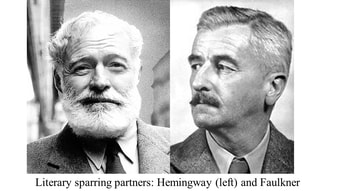 Over the years there have been some great rivalries in literature and the rivals didn’t always play nicely. William Faulkner was accused by Ernest Hemingway of being under the influence of alcohol while he wrote. He said “I can tell right in the middle of a page when he’s had his first one.” Given Hemingway’s own reputation as an imbiber, that may be seen as a pot-and-kettle sort of remark. In retaliation Faulkner quipped. “He has never been known to use a word that might send a reader to the dictionary.” Personally, I’d find that a recommendation. When I’m reading, I don’t want to have to keep looking up words to find out what the author is talking about. But maybe that’s just me. But in return for that slight, Hemingway came back with “Poor Faulkner. Does he really think big emotions come from big words?” Hemingway seems to have attracted a lot of criticism from fellow writers. In 1972 Victor Nabokov said, “As to Hemingway, I read him for the first time in the early ‘forties, something about bells, balls and bulls, and loathed it.” I was always taught not to speak ill of the dead and Hemingway died in 1961, so he didn’t even get the right of reply.  Lord Byron, who should be careful of whom he insults if he's going to dress like that! Lord Byron, who should be careful of whom he insults if he's going to dress like that! Two great rivals of late 18th and early 19th century poetry were Lord Byron and John Keats. I think it was true to say that Byron wasn’t exactly an admirer of Keats, if this quote is anything to go by: “Here are Johnny Keats’ piss-a-bed poetry, and three novels by God knows whom… No more Keats, I entreat: flay him alive; if some of you don’t I must skin him myself: there is no bearing the drivelling idiotism of the Mankin.” Ouch. 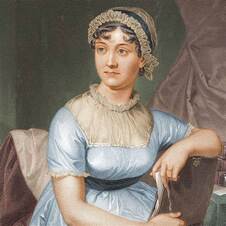 A victim of misogyny? Jane Austen A victim of misogyny? Jane Austen Male authors aren’t always gentlemen. In an era when it was considered a great social gaff to insult a woman, Ralph Waldo Emerson said of Jane Austen’s writing “Miss Austen’s novels . . . seem to me vulgar in tone, sterile in artistic invention, imprisoned in the wretched conventions of English society, without genius, wit, or knowledge of the world. Never was life so pinched and narrow. The one problem in the mind of the writer . . . is marriageableness.” But he wasn’t the only one to be critical of Austen. Mark Twain, never a shrinking violet, said of her work “I haven’t any right to criticize books, and I don’t do it except when I hate them. I often want to criticize Jane Austen, but her books madden me so that I can’t conceal my frenzy from the reader; and therefore I have to stop every time I begin. Every time I read ‘Pride and Prejudice,’ I want to dig her up and hit her over the skull with her own shin-bone.” 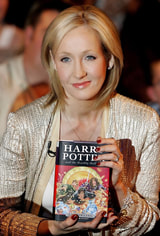 J K Rowling J K Rowling And things haven’t changed much since. Harold Bloom proved himself to be quite ungentlemanly when he said of J K Rowling “How to read ‘Harry Potter and the Sorcerer’s Stone’? Why, very quickly, to begin with, and perhaps also to make an end. Why read it? Presumably, if you cannot be persuaded to read anything better, Rowling will have to do.” Bearing in mind that Rowling aimed her books at younger readers, that was a trifle harsh coming from an adult. Bloom was about 70 then, so a little old for Harry Potter I would have thought. Sometimes these things can form chains. Gore Vidal said of Truman Capote “He’s a full-fledged housewife from Kansas with all the prejudices.” While Capote said of Jack Kerouac “That’s not writing, that’s typing.” 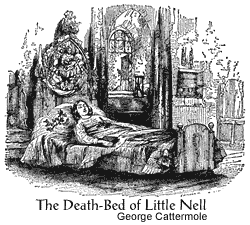 But for my final literary insult I return to the daddy of them all, Oscar Wilde, Having read The Old Curiosity Shop, by Charles Dickens, Wilde offered this opinion: “One must have a heart of stone to read the death of Little Nell without laughing.” I wish you better criticism than that, and for my closing quotes I’ll return firstly to Ernest Hemingway, “Critics are men who watch a battle from on high and then come down and shoot the survivors”. 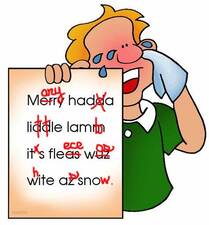 Constructive criticism Constructive criticism And secondly to Brendan Behan: “Critics are like eunuchs in a harem: they know how it’s done, they’ve seen it done every day, but they’re unable to do it themselves” Just remember that last one the next time you get a less than fulsome review. And if you are going to be critical of another author's work, at least try to make it witty. Who knows - you might even be quoted in a blog like this. If you have found this blog interesting or informative and you would like to make sure you don't miss future editions, why not sign up for our newsletter? Just click the button below. We promise not to spam you and you can unsubscribe at any time.
0 Comments
Leave a Reply. |
AuthorThis blog is compiled and curated by the Selfishgenie publishing team. Archives
June 2025
|
 RSS Feed
RSS Feed